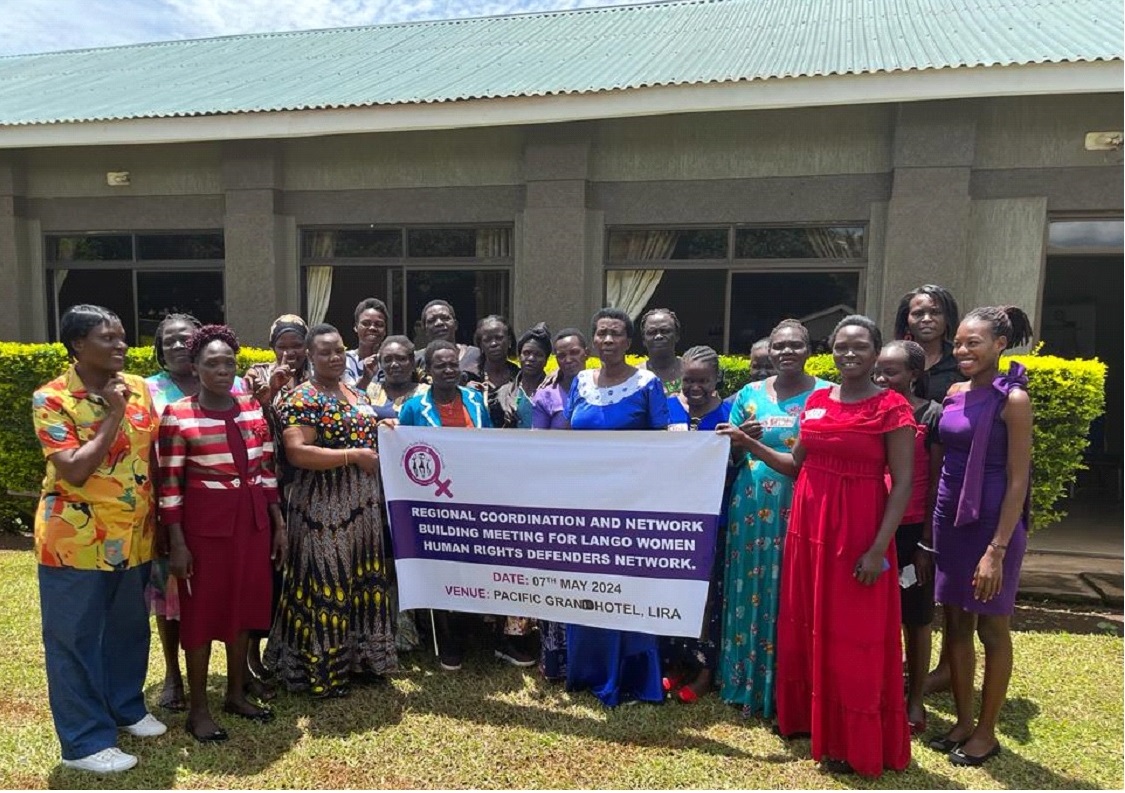The recent regional coordination meeting for Women Human Rights Defenders (WHRDs) in Lango marked a significant step in empowering women defenders to navigate and overcome the challenges they face in their vital work. Organized by the Women Human Rights Defenders Network-Uganda (WHRDN-U) and held at Pacific Grand Hotel in Lira district, the one-day gathering provided a safe and collaborative space for 19 women defenders from the Lango region.
The meeting aimed to enhance the capacity of WHRDs to identify and mitigate the growing threats they encounter both online and offline. Through insightful training on digital and physical security, participants gained practical skills to protect themselves, their families, and their workspaces. The sessions also emphasized effective documentation of human rights violations and explored ways to foster greater solidarity within the Lango WHRDs network.
One of the key highlights of the meeting was the session on identifying online and offline threats. Women defenders revealed the alarming range of risks they face, including cyberbullying, smear campaigns, online shaming, and hacking of digital platforms. Offline threats were equally concerning, with reports of physical surveillance, threats of arrests, attacks on homes and offices, and public defamation. These experiences underscore the urgent need for more robust protection mechanisms for WHRDs.
To respond to these threats, participants were equipped with vital knowledge on physical and digital security. Training sessions focused on home, office, and mobile phone security, as well as safeguarding computer systems. WHRDs were taught how to secure access to their devices, protect sensitive information, and use security tools to shield themselves from both physical and cyber threats. The emphasis on practical, hands-on skills allowed participants to develop personalized security plans that can be implemented in their daily lives.
Another key session on human rights documentation equipped WHRDs with the skills to record and report incidents of violence accurately. Participants practiced filling out incident forms using real-life scenarios, which enhanced their capacity to seek justice and demand accountability for violations against WHRDs.
Beyond the skills-building sessions, the meeting also strengthened solidarity among WHRDs in Lango. The network emphasized the importance of coordination and collective advocacy. Participants committed to enhancing their support for one another through relationship-building, joint advocacy, and shared resources. Such collaboration will be critical in sustaining the momentum generated by the training.
The meeting’s successes were evident in the active participation and commitment of all 21 attendees. The knowledge and skills acquired are expected to have a lasting impact, enabling WHRDs to navigate risks and continue their essential human rights work more safely and effectively.
However, challenges persist. Deep-rooted societal attitudes, limited resources, and systemic barriers continue to hinder the work of WHRDs in Lango. Overcoming these barriers will require sustained awareness-raising, strengthened partnerships with law enforcement, and continued mentorship and training for WHRDs.
WHRDN-U remains committed to supporting the defenders in Lango. Moving forward, the organization will facilitate follow-up initiatives to ensure the commitments made during the meeting are realized. Through continued capacity-building and solidarity, WHRDs will be better positioned to overcome threats and champion human rights for all.
